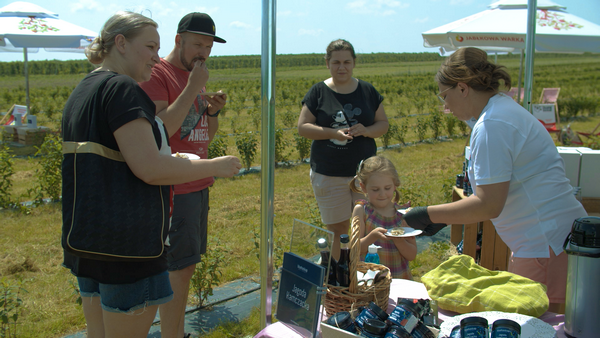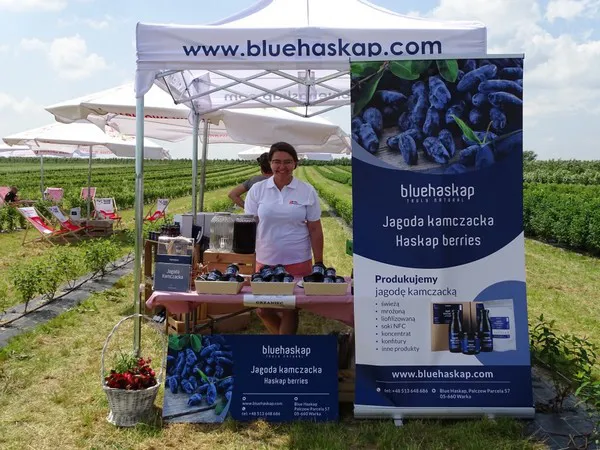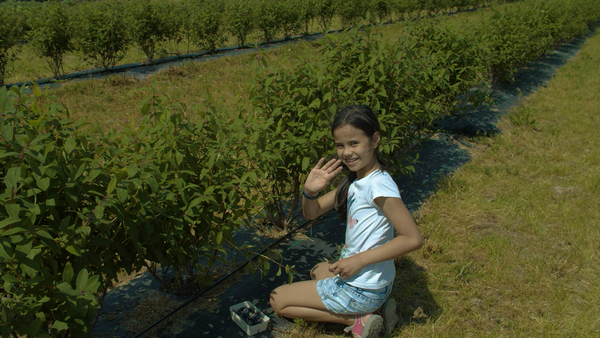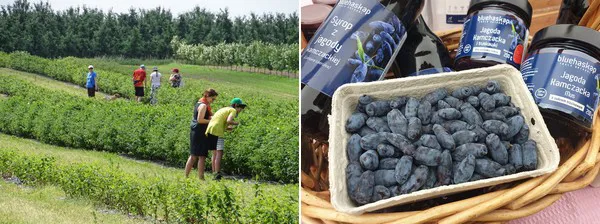After having tried for multiple years, a Polish haskapberry trader has come to conclusion that the fruit simply isn’t suitable for export yet. Although work is being done to find a variety that can travel long distances without spoiling, the haskapberry isn’t there yet. Local demand is rising like never before, thanks to a marketing program that promotes ‘Super Berries’ on Polish national television.

Last month, Anna Litwin, CEO of BlueHaskap organized an open weekend on her haskapberry farm. “It was a very nice event, more than 200 people showed up over two days. These weekends actually have an effect on my business, as I’ve seen demand go up since. There is coverage locally and I’m seeing the haskapberry grow in popularity, not only in my own region, but across Poland. A marketing campaign that promotes the health benefits of fresh berries, called ‘Time for Polish Super Berries’ is currently running on national television and I can see the effects in terms of demand.”


The intention of Litwin has always been to export the haskapberries eventually. However the increase in local demand is very important, as she’s realized the export of haskapberries are still a while away. “We’ve tried for multiple years now, finding the right variety for export. The Haskapberry is very fragile and can only last for two to three days after it’s been picked. This means it’s unsuitable for long distance travel, and we only ship about 100 kilometers away from where we are. Even with good cooling trucks or storage, the fruit will get juicier and thus stickier after the three days. This is also a problem with abroad retailers, who might not be as familiar with these berries and treat them just like they would with blueberries. By having them stored for too long, they then become unsuitable for consumption. The berries I pick in the morning are sold during the evening and in the consumer’s hands 24 hours after that. Storing the fresh berries for even a day would leave little time for actual consumption.”
The haskapberry can also be processed for juices and jams, or be frozen. And in these states, the berries are perfectly fine for export:

“We’re currently in talks with an Italian and German company about our juices and jams, so there’s still an opening for non-fresh haskapberries. And who knows, there’s currently a research center working on a new variety. They’ve mixed an American variety with a Japanese one, and the results are promising. However these berries are still being tested, so it will be a year, if not two years, before this variety becomes available. Another option is to sell the haskapberries freeze-dried, which is what I’m pushing for at the moment. In a freeze-dried state, all the healthy vitamins still remain in the product, making it the perfect snack.” Litwin concludes.

For more information:
Anna Litwin
BlueHaskap
Tel: +48 513-648-686
Email: anna@bluehaskap.com
www.bluehaskap.com
